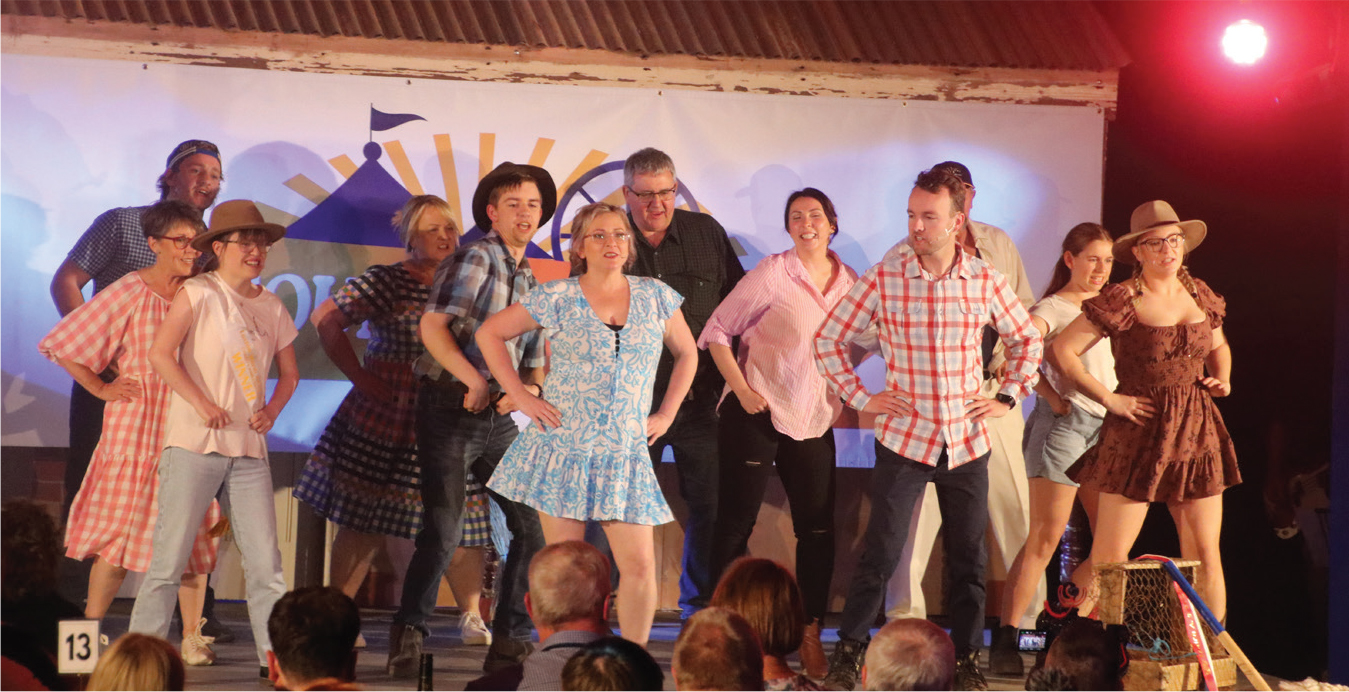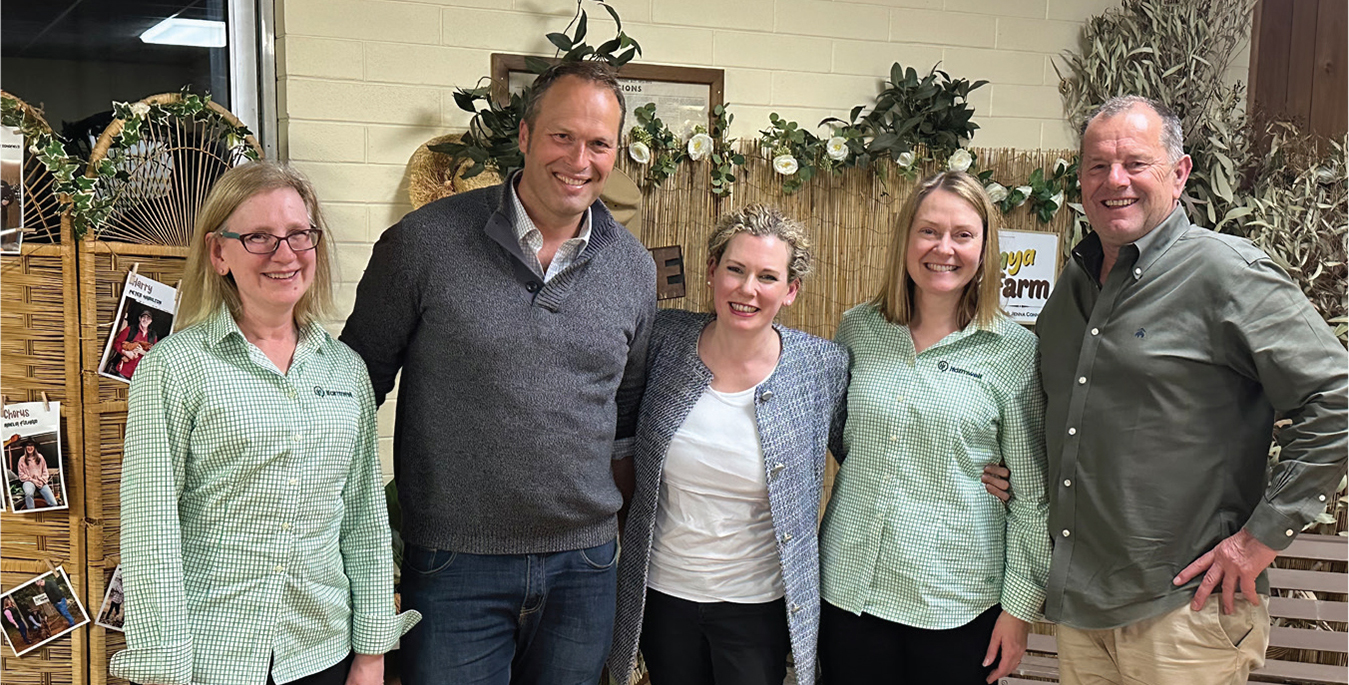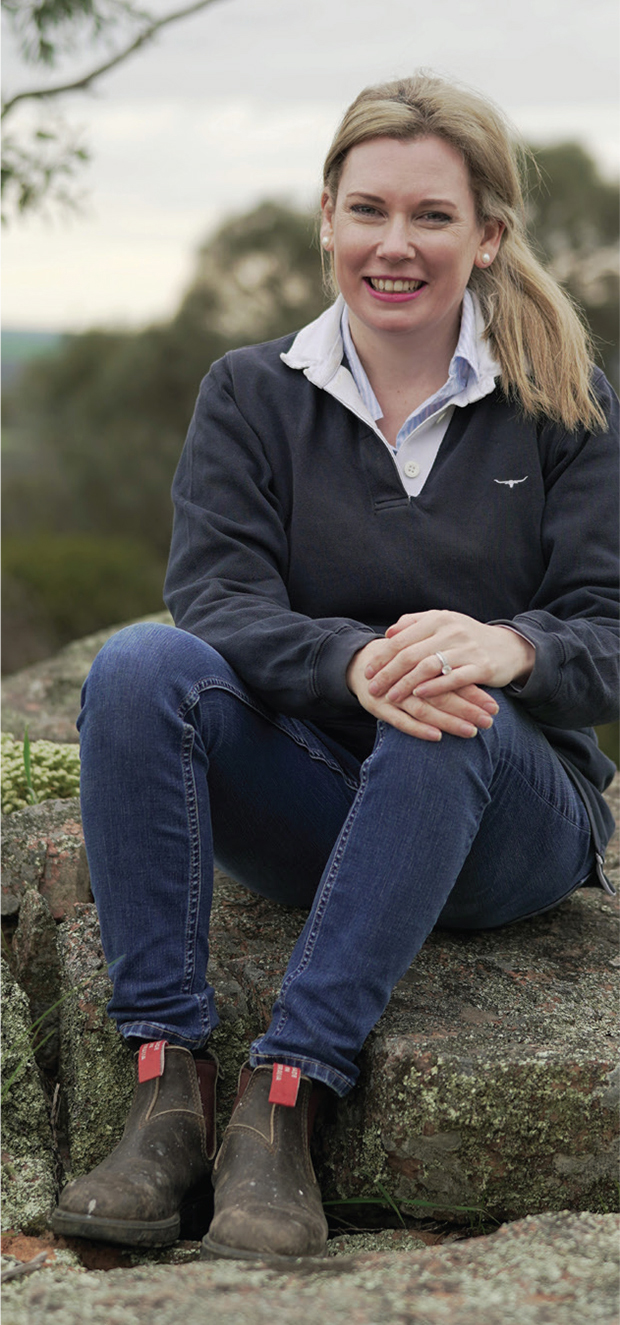Among rising national suicide rates, farmers are one of the most at-risk groups. They are 60 per cent more likely to take their own lives than other employed people, with a death every 10 days.
Not merely an individual impact, these losses devastate families and close-knit communities, with long-term, life-altering repercussions for all.
University of South Australia clinical psychologist Associate Professor Kate Gunn and her team are on a mission to end these frightening statistics. Funded almost entirely through the philanthropic support of generous individuals and organisations, the team is taking a holistic, multi-faceted approach to tackling rural mental health, before it escalates to tragedy.
The foundation for this, first launched by Gunn in 2018, is ifarmwell: a free online toolkit equipping farmers with practical strategies and tactics to cope with stress and halt spiralling thoughts of despair. Five core modules take the user through a self-paced journey – accessible any time or place by smartphone, including out on the tractor – lifting them out of habitual patterns of negative thinking and bringing them back to the present moment, re-focusing on family, friends, the farm, and the things that matter most to them in the here and now.
What makes ifarmwell particularly effective is that the modules have been designed by farmers, for farmers – helping to address one of
the most critical challenges for farmers in distress. Immersed in a culture that prizes self-reliance and stoicism, one of the biggest obstacles for farmers’ mental health is their reluctance to seek professional mental health care: from fear of stigma within a small community, the belief that mental health professionals outside the community won’t understand the challenges of rural life, and, fundamentally, because it can be difficult for farmers to talk about their feelings.1
“Farmers want the person at the other end of the phone to understand their way of life,” says ifarmwell Program Manager Dr Natasha Caulfield. “There’s only one chance to get it right – after a bad experience, they may not be inclined to try again.”
Gunn understands this from her own personal experience growing up on a farm and witnessing tragedy within her rural community on South Australia’s Eyre Peninsula. Combining this with her experience as a researcher and clinical psychologist, she has involved farmers every step of the way in the development of ifarmwell. “It’s based on what farmers say they want, combined with what research and clinical experience show will help, and delivered in the farmer’s ‘voice’,” Gunn says.
A pivotal moment in ifarmwell’s success was the approach from farmer John Gladigau, who was keen to create light-hearted entertainment that communicated important mental health messages. Seeking Gunn’s expertise, the result
was Kick Off Ya Boots, a dinner theatre-style performance with audience members encouraged to carry on the discussion and share something they would do differently in their lives. They received a reminder check-in SMS message a week later and then a final SMS to see if they had done the actionable goal.
The show was a huge hit, and armed with food, music and humour, Gunn and Gladigau successfully transcended barriers to start a rural mental health movement.
The outstanding success of these initiatives earnt the team two major awards presented at Parliament House. The 2022 Farmer of the Year Award for Excellence in Agricultural Research from ABC Rural and the Kondinin Group, and National LiFE Award for Innovation from Suicide Prevention Australia – followed by the Community Champion accolade in the 2023 Universities Australia Shaping Australia Awards, which led to a host of articles, radio interviews, and invitations to speak at key agricultural conferences that have continued the positive exposure.
Yet, none of this would have been possible without philanthropic support.
Contributions from charitable trusts and foundations, including generous support from the NAB, Thyne Reid, James and Diana Ramsay and Lang Family Foundations, have been essential for developing the ifarmwell platform and building the team that supports, promotes


Top: The cast of Kick Off Ya Boots in action
Bottom: Dr Donna Hughes-Barton, Research Fellow; David Jochinke, National Farmers’ Federation President; Associate Professor Kate Gunn, Enterprise Fellow (Rural Health), Clinical Psychologist and Founder ifarmwell; Dr Natasha Caulfield, ifarmwell Program Manager and Tim Whetstone MP, Member for Chaffey

Associate Professor Kate Gunn, Enterprise Fellow (Rural Health), Clinical Psychologist and Founder ifarmwell
and grows it. Contributions have also been received from communities that have been impacted by farmer suicide.
Having gained accreditation from Suicide Prevention Australia in 2023, Gunn and her team are now seeking funding to create a dedicated national helpline, in partnership with Lifeline Australia, the National Farmers’ Federation and several different groups. Despite ifarmwell’s practical success in rural communities, the team was unsuccessful in gaining Federal government funding for this valuable initiative in the 2023, 2024, and 2025 budgets.
In the meantime, a third installment of Kick Off Ya Boots has hit the road. This time, the show is
a professionally produced film of the Loxton performers, presented at six dinner venues throughout South Australia, surpassing the target of 600 to reach another 900 people. This has been generously funded by SA Drought Hub, which also supported the development of conversation card decks for guests, another initiative that is testing well.
“Kate has been great at coming up with new ideas on how to reach more people,” says Caulfield. “She realised in her clinical practice that many of her clients were coming in with similar issues, and she was providing them similar advice. She went from one-to-one support to one-to-many.”
Through comprehensive evaluations published in peer reviewed scientific journals and anecdotal evidence – both from grateful individuals and friends and family members – the ifarmwell team knows it works.
“Farmers play a crucial role in sustaining our communities and economies, as well as supporting the lifeblood and wellbeing of the communities in which they live. It’s unacceptable to lose one every 10 days. There’s a lot more we hope to be able to do, to help them.”
This is an excerpt from a more extensive article which you can read here.